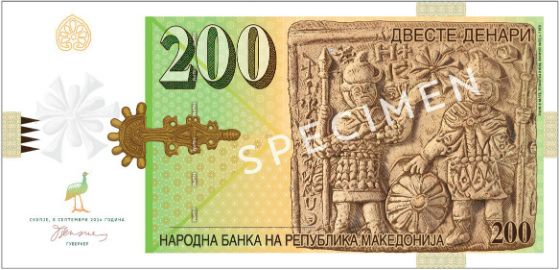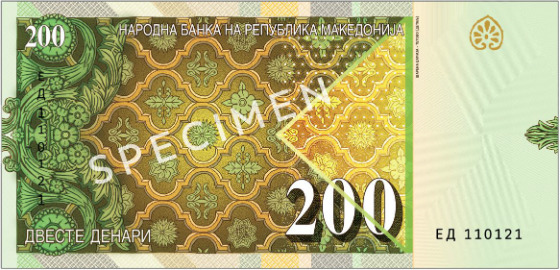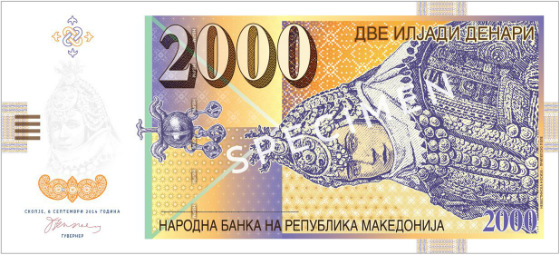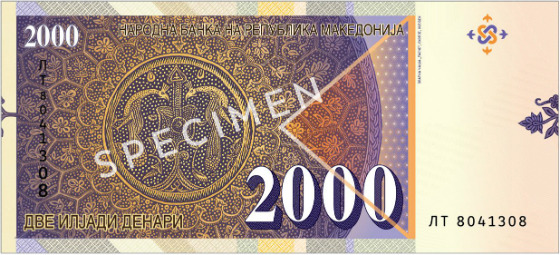Macedonia has issued two new banknotes
 The National Bank of the Republic of Macedonia has issued the new banknotes of 200- and 2,000-denar on 15 December 2016. The Bank is also withdrawing the 5,000-denar notes. From 15 December 2016 to 28 February 2017 they can be exchanged at commercial banks. From 1 March 2017 the 5,000-denar notes can only be exchanged at the National Bank of the Republic of Macedonia.
The National Bank of the Republic of Macedonia has issued the new banknotes of 200- and 2,000-denar on 15 December 2016. The Bank is also withdrawing the 5,000-denar notes. From 15 December 2016 to 28 February 2017 they can be exchanged at commercial banks. From 1 March 2017 the 5,000-denar notes can only be exchanged at the National Bank of the Republic of Macedonia.
From the original press release:
"Leitmotif of the obverse of the conceptual, and art and graphic design of the 200 denar banknote is the relief with a presentation of the 41st Psalm of David from the Old Testament, which belongs to the infamous terracotta icons from Vinica, one of the most important early medieval archaeological discoveries on the territory of the Republic of Macedonia. On the same side, in the left center field, there is a presentation of an early medieval bow bronze fibula from the beginning of the VII century, found near Prilep. The reverse of the banknote contains a presentation of an architectural and art element of the frontal facade of the "Colorful (Aladzha) Mosque" in Tetovo, one of the most attractive monuments of architecture and art from the Ottoman period in the Republic of Macedonia, complemented by floral elements taken from the decoration of the marble floor tiles of the famous "Isaac Mosque" in Bitola, built at the beginning of the XVI century.
Leitmotif of the obverse of the conceptual, and art and graphic design of the 2000 denar banknote is the presentation of Macedonian bridal costume from Prilep Field, as an impressive reflection of the richness of the folklore heritage of the Republic of Macedonia. On the same side, in the left center field, there is a presentation of a pendant in the form of a poppy head, which was discovered in Suva Reka, Gevgelia. It is an artifact dated to the VII century BC and belongs to the well-known group of Paionian-Macedonian bronzes. The reverse of the banknote contains a presentation of the decoration of the inside of a gilded vessel, which originates from the XVI century and whose central field shows two affronted peacocks near the "source of life" surrounded by lavish floral decoration."














No comments